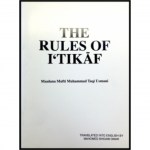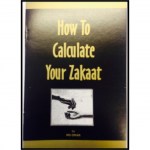1. The Holy Quran has specified eight categories of eligible recipients of Zakah. Save for the collectors of Zakah, ( العاملين عليها) , the remaining seven categories are entitled to receive Zakah based on their genuine need, namely , that the individual poor and needy Muslim does not own surplus assets equal to nisaab, over and above his or her basic necessities, as at the Zakah valuation date.
2. The poor and needy Muslim is the first specified category. Another important category is the Al - Ghaarimeenالغارمين: namely , those eligible debtors who are burdened with debt, and who do not have the capacity or financial means to settle their debts. ( Qurtubi) هم الذين ركبهم الدين و لا وفاء عندهم به. ه
3. In the Hanafi school, the Ghaarimeen are defined as that eligible Muslim needy debtor who , after excluding his or her basic necessities, does not own surplus assets of any kind, equal to Nisaab. و لا يملك نصابا فاضلا عن دينه. الدرر المختار
4. Basic necessities, such as the value of a single residence, essential household furniture and effects, essential tools of trade, a servant, and a single motor vehicle , are not taken into account, in determining the eligibility of the recipient for Zakah, and are deemed for this purpose to be non - existent. لانه مشغول بحاجته الأصلية فاعتبر معدوما: اللباب
5. It is preferable to pay an eligible debtor instead of a poor Muslim , because the burdened debtor is deemed to be in greater need. الدفع للمديون أولى من الدفع للفقير الغير المديون لزيادة احتياجه : رد المحتار
6. It is important to note that although the payment of Zakah constitutes a spiritual and material purification for the Zakah - payer, the receipt thereof in the hands of the eligible recipient is absolutely pure and legitimate.( as a blessing from Allah )
7. It is useful to bear in mind the well known statement of Caliph Umar (ra) to the effect that Zakah should be used to empower the eligible Zakah recipients; . و قال عمر إذا أعطيتم فاغنوا ) كتاب الاموال
8. At the same time, it is a settled principle that it is not necessary to disclose to the eligible recipient that the source of the funds are Zakah.
9. The Holy Prophet صلى الله عليه و سلم stated that there are only three classes of persons who may ( out of genuine necessity) ask for Zakah : one category is that person who is affected by any kind of an epidemic or calamity, with the result that his property is destroyed; such affected person may ask until his or her needs are fulfilled.
ان المسالة لا تحل الا لثلاثة .........
و رجل اصابته جانحة فاجتاحت ماله فيسأل حتى يصيب قوامًا من عيش...
الجصاص: احكام القران.
10. .Imam Abu Hanifa(ra) has stated that it is permissible to distribute all the Zakah to recipients belonging to one specific category, based on the needs at the relevant time. اذا رأى ذالك بحسب الحاجة. A similar position has been adopted by Imam Malik(ra) , upon a purposive interpretation of the Zakah verses. ( Bidayah - al Mujtahid: Ibn Rushd).
ذهب جمهور العلماء الى انه لا يجب تعميم الزكاة على الاصناف…قال ابن عباس في صنف وضعته اجزاك.
الموسوعة الفقهية.
11. It should be noted that a Muslim is disqualified from receiving Zakah if he or she owns surplus assets, over and above the basic necessities, equal to Nisaab.
12. We have a duty to assist non- Muslims with non - Zakah funds. The Holy Quran enjoins us to do good to them and to be just to them, as Allah loves those who are just. ( S 60 : V 8).
M S Omar
23 April 2022
1. Current Account: الحساب الجاري. A current account is characterized in Shari’ah as a loan by the client to the bank, which is repayable by the bank on demand. In this sense , the repayment of the principal is guaranteed by the bank under all circumstances, on the analogy of a regular loan. On this basis, the credit balance is a strong debt, دين قوي , with the result that Zakah must be payable on the credit balance , as at the passing and completion of the lunar Zakah year عند تمام الحول ( “ the Zakah valuation date”) together with the aggregate value of any other Zakaatable assets, equal to nisaab.
2. Investment Account : الحساب الاستثماري : the cash amount invested by the client رب المال constitutes the capital of the special partnership in profit known as Mudarabah. In terms of this contractual arrangement, the client and the bank share the profits and losses of the Common Mudarabah Pool in a pre- agreed ratio. Zakah is accordingly payable by the client on his or her invested capital , together with any accrued profits thereon , as at the Zakah valuation date, irrespective of the duration of the investment, because the client is at all times the owner of the capital together with his or her share of the accrued profits, as reflected in the relevant statement of account.( see Al - Mughni of Ibn Qudamah : vol2 : par :1929)
3. Investment Sukuk : صكوك الاستثمار : these are certificates of equal value which represent a pro rata undivided share of beneficial ownership in the underlying assets of the portfolio . The owners of the certificates must pay Zakah , based on the Zakaatablity of the underlying assets which the certificates represent, as at the Zakah valuation date. يزكيها حملتها بحسب الموجودات التى تمثلها
4. Take the following examples.
5. Ijarah Sukuk : the holders of Sukuk certificates own the underlying assets in pro rata undivided shares, through the conduit of a special purpose vehicle. The jointly owned assets in turn are leased to third parties to generate returns for investors in proportion to their investment. No Zakah is payable on the value of the underlying assets, because they do not constitute trading stock. Zakah is only payable on the net unexpended income , held as at the Zakah valuation date.
6. Murabahah Sukuk : the Sukuk holders beneficially own the underlying tangible assets which are purchased and sold , on a Murabaha basis to third party purchasers. The tangible assets for sale are deemed to be trading stock and Zakah is accordingly payable on the market value thereof, together with a pro rata share of any cash in the portfolio, so held as at the Zakah valuation date.
7. Security Deposit : هامش الجدية: this represents an agreed amount paid by the client to the bank ,in advance of and prior to entering into a Shari’ah compliant financing transaction , held by the bank in trust, on behalf of the client, as security for the fulfillment of the client’s binding promise to enter into the financing contract. If the client reneges on his promise, the bank is entitled to recover any actual out of pocket loss arising from the breach of promise , limited to the difference between the proceeds of the sale of the relevant commodity to a third party, and the original higher price paid by the bank to the supplier, under the first sale between the supplier and the bank. The client must pay Zakah on the security deposit held on it’s behalf, as at the Zakah valuation date, on the capital together with any accrued profits, if so held in an investment account. هامش الجدية: و هو المبلغ المقدم تاكيدا للوعد الملزم لتغطية ضرر النكول عنه
8. Takaful : the monthly contributions paid by members to a non- profit Takaful Fund , are deemed to be purely gratuitous. These contributions of members are received and are owned by the Fund , as a separate legal person, are managed in accordance with its rules, with the result that no Zakah is payable thereon by the member, in the absence of ownership. لعدم تحقق الملك التام : فان محفظة التأمين لا زكاة فيها
9. Bank Guarantee : خطاب الضمان له غطاء كامل : this refers to the situation where the bank , acting as agent of the client, holds the client’s own funds , as collateral; the bank issues an on - demand undertaking, in favor of a third party beneficiary , to pay a specified amount upon the occurrence of a specified event, according to its terms. On this basis, the client must pay Zakah on the funds held on it’s behalf by the bank in a current or investment account, if so held as at the Zakah valuation date.
And Allah Knows Best
M S Omar
22 May 2022



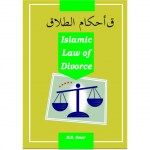
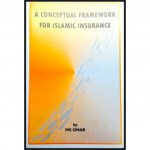
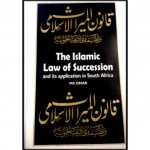
 SUPPORT
SUPPORT